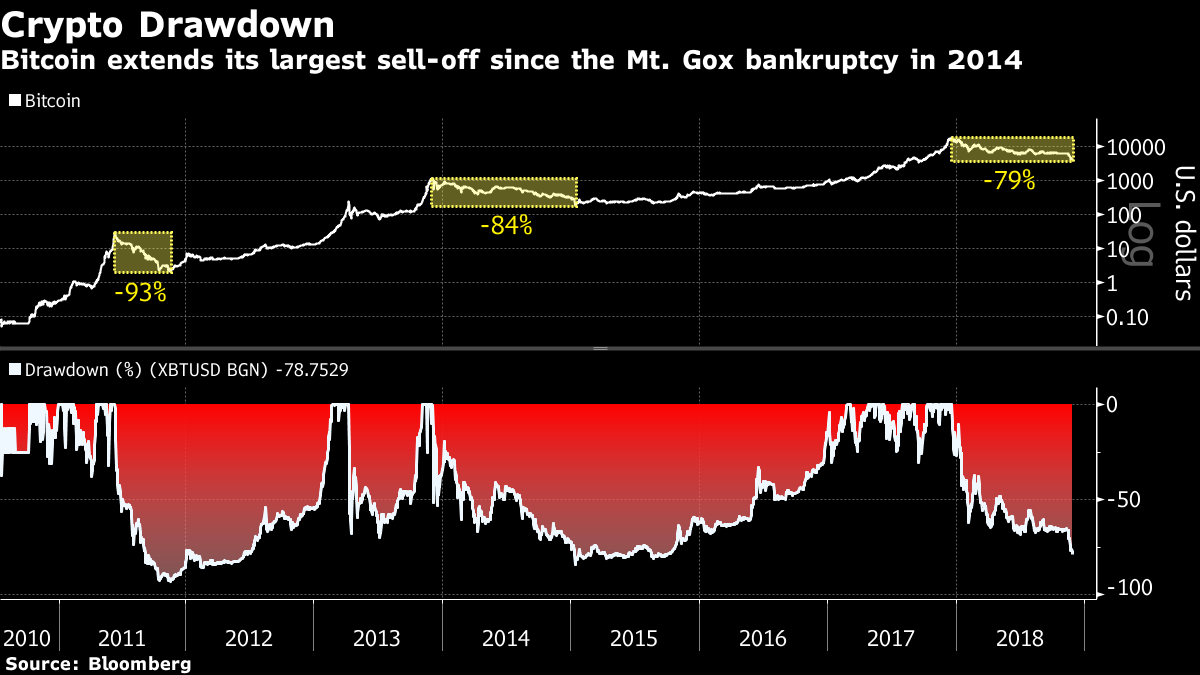Nov 26, 2018
Bitcoin's deepening crash now approaches its worst bear markets
, Bloomberg News

Bitcoin extended its tumble on Monday after breaking below the US$4,000 level over the weekend, putting the 2018 crash within striking distance of the cryptocurrency’s worst bear markets.
The virtual currency, conceived just over a decade ago, slid 7.8 per cent from Friday to US$3,931, Bitstamp prices showed as of 6:51 a.m. in New York. All nine of its largest peers tracked in real time by Bloomberg fell, with drops ranging as high as 14 per cent for Monero.
The 2018 crash, which has ensnared rival coins like Ether and XRP, is entering the same league as Bitcoin’s 93 per cent plunge in 2011 from its previous record high, and its 84 per cent rout from 2013 to 2015, during the collapse of Tokyo-based crypto exchange Mt. Gox. In dollar terms, the damage has been even bigger this time around: Virtual currencies tracked by CoinMarketCap.com have lost more than $700 billion of value since the market peaked in January.
While bulls are betting that demand from institutional investors will spark a rally, most big money managers have stayed on the sidelines amid concerns over exchange security, market manipulation and regulatory risk.
The selloff is “really testing the faith of a few key players,” Ryan Rabaglia, Hong Kong-based head trader at OSL, a cryptocurrency dealing firm, said in a phone interview. “I do think for this next push, we are going to need that institutional money to come in finally. To lend that support and help with growth.”







